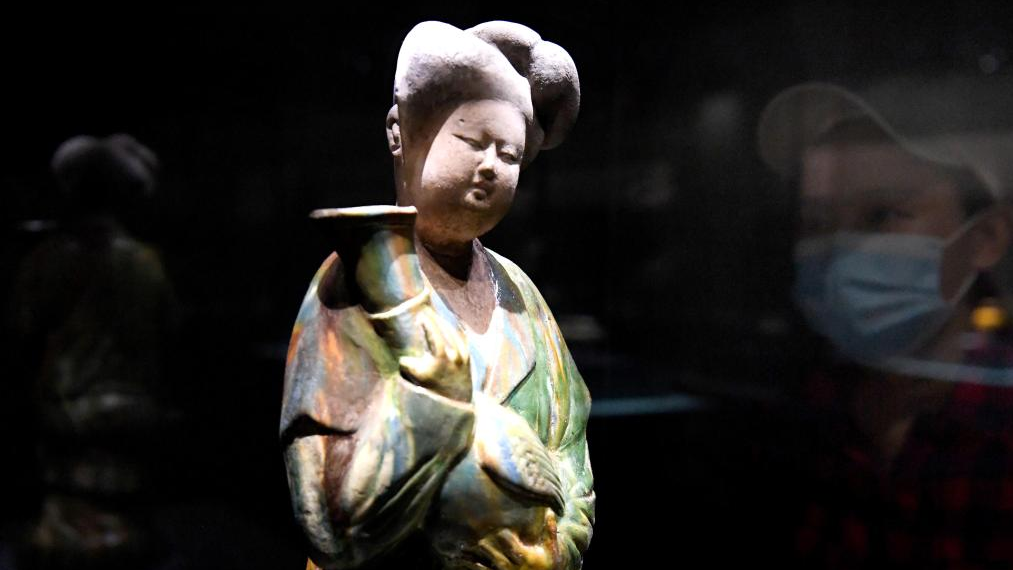New rare butterfly artificial breeding success in east China nature reserve
NANCHANG, Aug. 31 (Xinhua) -- Chinese researchers have successfully bred two Golden Kaiser-hind butterflies, a male and a female. The species is considered the world's rarest. The breeding of the female one was the first such instance in China.
The Teinopalpus aureus breeding and research base in Jiangxi Jinggangshan National Nature Reserve, in east China's Jiangxi Province, said the two butterflies were bred earlier this month.
Commonly known as Golden Kaiser-hind, Teinopalpus aureus is the most endangered among the world's eight most precious butterfly species and is on China's first-class animal protection list.
He Guiqiang, an expert with the breeding base, said that only two female Golden Kaiser-hind butterflies had been found in the wild since the discovery of the species in 2007. The scarcity of females, resulting in low reproductive capacity, is related to the small wild population of this butterfly species.
He said the breeding base achieved the first artificial breeding of Golden Kaiser-hind butterflies in 2020, and released the two males in the reserve.
With the successful breeding of the female this month, the breeding base would be able to effectively expand the rare species' population in the wild, He said.
Photos
Related Stories
- Drones help Chinese scientists protect Tibetan antelopes
- Rare endemic plant species discovered in east China's Jiangxi
- China pushes for negotiation of post-2020 global biodiversity framework
- Int'l conference opens to draft world's first ocean biodiversity treaty
- Biodiversity enhanced in China's Qinling Mountains
- Marine ranching helps restore biodiversity in south China island
- China makes notable progress in protecting rare wild animals that call country home
- Tianjin sees improved marine biodiversity
- Biodiversity improved in Zhenlai County, China's Jilin
- WWF calls for ambitious, consensual framework to halt biodiversity loss
Copyright © 2022 People's Daily Online. All Rights Reserved.









